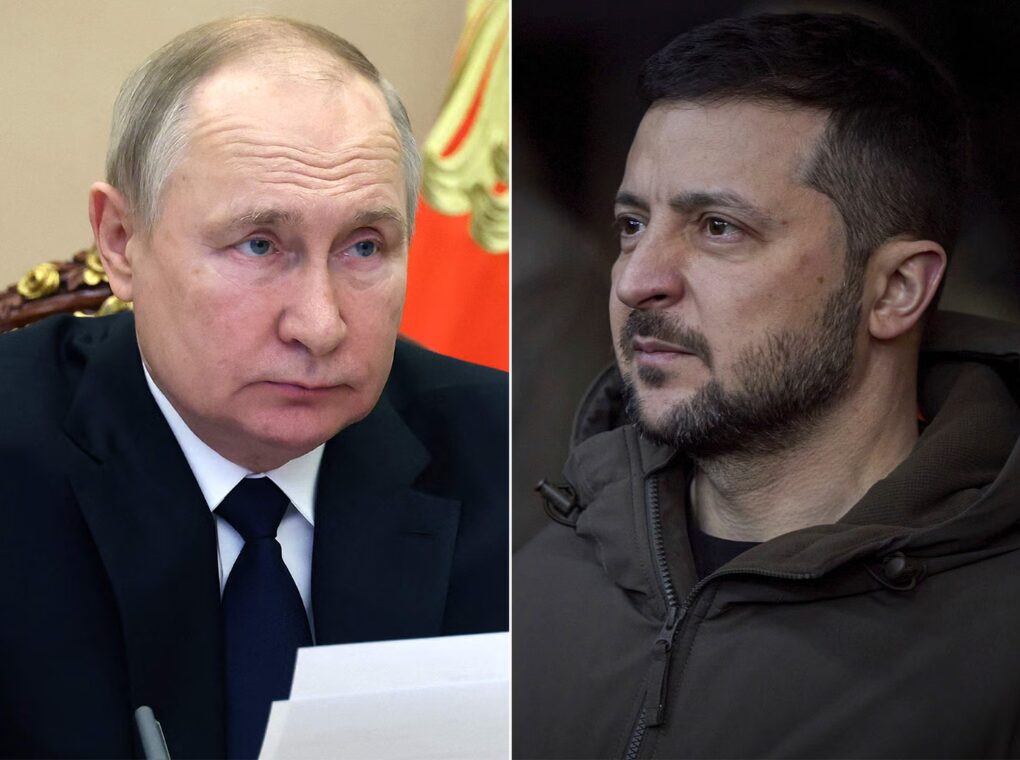Ukrainian intelligence officials have warned that Russia is actively courting a new Asian partner to bolster its ongoing war efforts in Ukraine. The claim, revealed in a briefing from Ukraine’s Defense Intelligence Directorate (GUR), suggests that Moscow is deepening its outreach across Asia to offset battlefield setbacks and Western sanctions.
While the GUR did not officially name the country, multiple sources within the Ukrainian government point to North Korea and Myanmar as leading candidates. Both nations have previously shown willingness to engage with Moscow militarily and diplomatically, and may be expanding that cooperation to include munitions, drones, or other war materiel.
A Growing Axis of Autocracies?
“Russia’s military-industrial complex is under enormous strain,” said Andriy Yusov, spokesperson for the GUR. “To sustain its offensive operations, Moscow is increasingly reliant on supplies and support from countries outside the West. Our intelligence indicates that a new Asian partner may soon deepen its cooperation—militarily or logistically.”
The warning follows months of reports suggesting Russia has already sourced ammunition and ballistic missiles from North Korea and military drones from Iran. Now, Ukraine fears another actor in the region may step in to fill logistical gaps, especially as Russia faces intensified pressure near Kharkiv and along the Dnipro River.
Myanmar, North Korea in Focus
Ukraine’s focus on Asia is not unfounded. In recent months:
North Korea reportedly supplied Russia with artillery shells, according to U.S. and South Korean intelligence, in exchange for food, oil, and potential nuclear technology assistance.
Myanmar’s junta has increased military cooperation with Russia since its 2021 coup, purchasing fighter aircraft, armored vehicles, and air defense systems. Ukrainian sources suggest Russia may be testing Myanmar as a new logistics or training hub for private contractors or arms shipments.
Moscow’s Denials, Kyiv’s Concern
Russia has officially denied the claims, calling them “propaganda” and accusing Ukraine of attempting to “internationalize” the war. However, independent military analysts note a pattern: when Russia’s domestic resources come under pressure, it seeks low-profile partners to maintain the flow of ammunition, spare parts, and foreign fighters.
“There’s a clear incentive for Russia to diversify its support base,” said Nina Kalenko, a military analyst at the Warsaw Institute. “Western sanctions have choked Moscow’s access to precision tech, drones, and replacement parts. Countries under Western sanctions themselves—like Myanmar, North Korea, or even Iran—have less to lose by helping Russia in return for economic or political favors.”
Strategic Ramifications
If confirmed, a new Asian partner in the Ukraine war would deepen global polarization, further isolating Russia from the West while strengthening ties among authoritarian regimes. It would also complicate efforts by the U.S., EU, and NATO to limit the flow of dual-use technologies and enforce arms embargoes.
“The conflict is no longer just about Russia and Ukraine,” Yusov added. “It is about defending the global order from authoritarian militarism. The more partners Russia finds, the more this war becomes a wider test of resolve for democracies.”
Western Response Expected
In response to the intelligence, NATO officials are expected to convene emergency discussions during this week’s Brussels summit. Washington has also vowed “swift consequences” for any nation found supplying Russia with lethal aid, hinting at secondary sanctions.
As the war in Ukraine grinds on into its third year, new alliances—whether covert or overt—could shift the battlefield balance in unpredictable ways. For Kyiv, the warning is clear: Russia’s fight may soon be backed by fresh support from the East.
